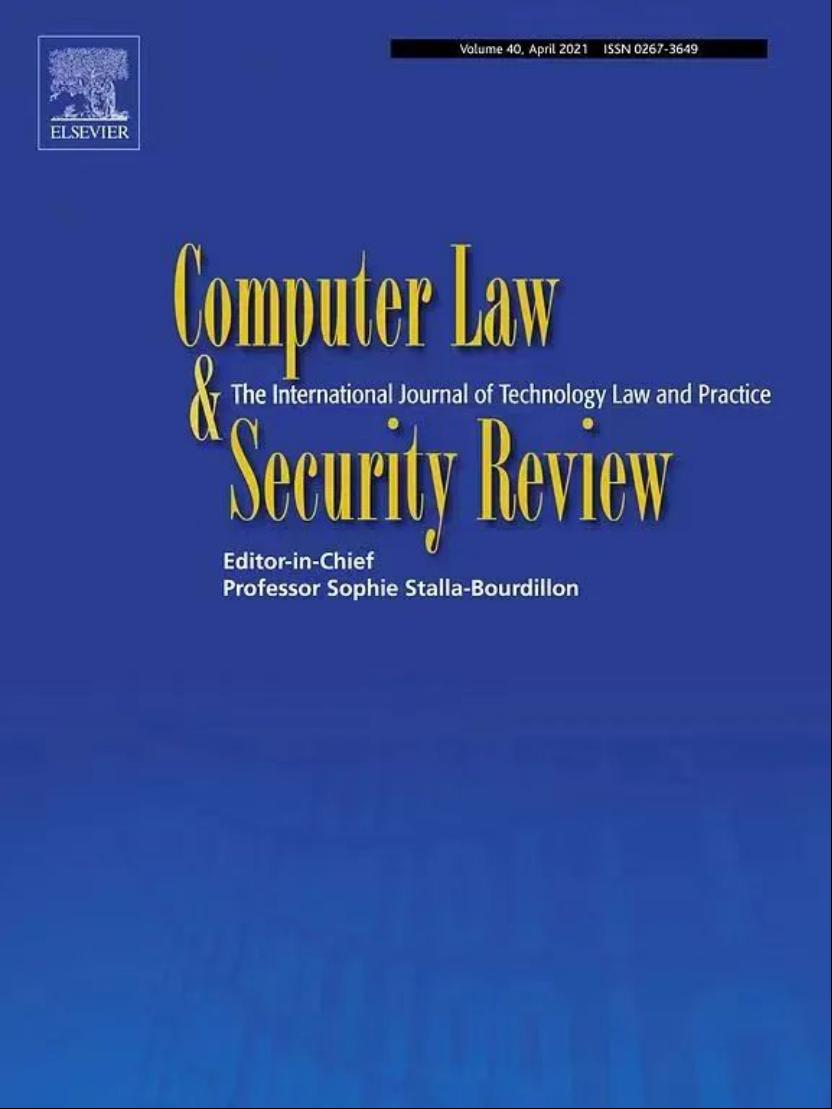近期,37000dCm威尼斯讲师叶凝遥与中国人民大学法学院博士研究生赵泽宇合作的论文《中国移动支付消费者保护的变革:立法、监管与争议解决》网络首发于法学类SSCI一区期刊Computer Law & Security Review(《计算机法律与安全评论》)。

CLSR由国际著名出版社爱思唯尔(Elsevier)出版,创刊于1985年,是最早进入法学类SSCI名录的信息科技法律类期刊,最新影响因子在152种法学类SSCI期刊中排名第12位。作为国际性的技术法律与实践杂志,该刊为信息技术法律、计算机安全领域与金融科技的高质量研究、政策和法律分析提供了一个主要的出版平台。
此前,叶凝遥博士已在香港城市大学主办的法学类SSCI期刊Asian Pacific Law Review发表论文《中国存款保险制度改革:从隐性迈向显性》;赵泽宇博士生此前在牛津大学出版社出版的法学类SSCI期刊Journal of Competition Law & Economics发表论文《算法价格歧视与算法解释权》。
该文以移动支付的消费者保护为切入点,以我国微信支付和支付宝为例,分析了移动支付中消费者面临各方面的损害,包括账户盗用、信息泄露与破坏交易安全等。大型的支付服务平台由于其在市场中的重要地位,这些消费者面临的风险很可能被放大,形成系统性的风险。本文指出,我国金融消费者本身定位不明;移动支付的监管较其他金融行业的监管较为松弛;消费者本身在移动支付的使用中处于弱势;且我国移动支付的消费者保护制度仍不十分完善。这些特点体现了我国对于移动支付的消费者保护整体从监管的角度而言无法非常有效防止消费者的损害。
本文同时分析了我国在2023年的金融机构改革与茁壮成长的金融消费者争议解决机制对于移动支付消费者保护的影响。虽然这一系列措施有助于消费者的保护,但这些措施仍然不够。因此,本文提出以下意见:(1)统合现有的金融消费者保护相关的法律法规;(2)加强金融消费者争议解决机制的制度构建;(3)借鉴欧盟的“守门人”制度发展我国的“系统重要性非银行支付机构”的制度。
Abstract: In China, mobile payment services, based on a rapid development of financial technology, have been playing an essential role in Chinese residents’ daily life, creating a cashless society. Unlike many advanced countries having a clear legal definition of financial consumers and incorporating consumers of mobile payment services into financial consumers, China, as one of the largest markets for mobile payment services, has not had a clear legal definition of financial consumers with no clarity regarding whether consumers of mobile payment services belong to financial consumers. This article not only provides a legal analysis of consumers of mobile payment services in China, but also outrightly explores the prospective reform of financial consumer protection with reference to other countries’ successful experience and standards. By the analysis, this article attempts to find out solution for the Chinese financial consumer protection scheme and argues that the Chinese financial consumer protection scheme has to be well designed to maintain a balance between consumers and mobile payment giants.
Table of Contents
1.Introduction
2.Common and expanded consumer damages arising from the use of mobile payment services and the lagging protection
3.The dilemma of addressing consumer complaints
3.1. The unclear definition of consumers of mobile payment services
3.2.Should mobile payment service providers be treated as “banks” or “financial institutions”?
3.3.Consumer disadvantages in mobile payment services
3.4.The unfit legal structure of financial consumer protection in China
4. How did China respond to the dilemma of financial consumer protection?
4.1.The 2023 financial institutional reform
4.2.The established but unsophisticated ADRs for Chinese financial consumers
5.Optimizing the Chinese customer protection scheme for mobile payment services
5.1.Enriching and reforming the legislations to diversify consumer protection measures
5.2.Improving the flexibility and accessibility of ADRs
5.3.The increasing liabilities for mobile payment giants: functions between financial and digital gatekeepers
6.Conclusion
编 辑:胡天翊
初 审:吴 荻
终 审:梁 敏